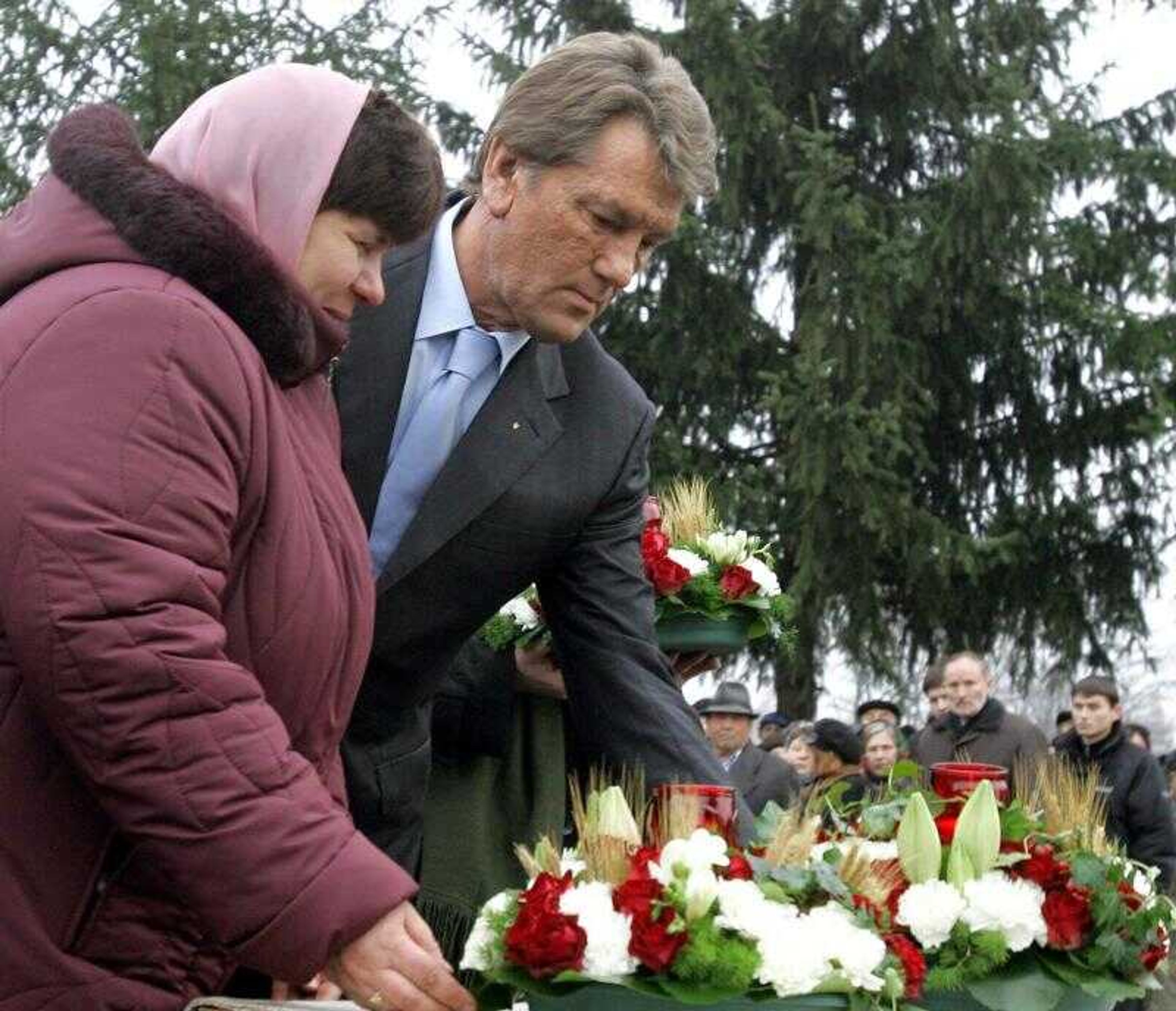Ukraine marks anniversary of forced famine
KIEV, Ukraine -- If a black flag waved in the air above a Ukrainian village in 1933, Ukrainians knew that every single resident was dead and their emaciated bodies were waiting to be collected. Today, this former Soviet republic marks the 73rd anniversary of the Great Famine -- a tragedy orchestrated by Soviet dictator Josef Stalin that continues to haunt and divide the nation of 47 million. ...
KIEV, Ukraine -- If a black flag waved in the air above a Ukrainian village in 1933, Ukrainians knew that every single resident was dead and their emaciated bodies were waiting to be collected.
Today, this former Soviet republic marks the 73rd anniversary of the Great Famine -- a tragedy orchestrated by Soviet dictator Josef Stalin that continues to haunt and divide the nation of 47 million. President Viktor Yushchenko wants the deaths of an estimated 10 million of his countrymen recognized as genocide, but Russia has warned Kiev against using that term to describe the mass starvation.
During the height of the famine, 33,000 people died of hunger every day. Cases of cannibalism were widespread as desperation deepened. Parents ate their children, and adult children ate elderly parents.
"Cats were eaten, dogs were eaten, then people started eating each other," Anna Vasilieva, 85, said. She said her younger brother, Oleksiy, once returned home and told her he had just seen their neighbor eat a boiled hand.
"He told me, 'I also want to eat an arm, I want to eat fingers,"' Vasilieva said.

Stalin provoked the famine in a campaign to force peasants to give up their private farms and join collectives. Authorities collectivized agriculture throughout the Soviet Union, but farmers in Ukraine -- known as the breadbasket of the U.S.S.R. -- fiercely resisted collectivization and bore the brunt of the man-made disaster.
Historians say the overwhelming majority of deaths in the Great Famine occurred in Ukraine, which lost one-third of its population.
Authorities ordered each village to provide the state with a quota of grain, but the demands typically exceeded crop yields. As village after village failed to meet the requirements, they were put on a blacklist. The government seized all food from blacklisted villages, but residents were prohibited from leaving -- effectively condemning them to starvation.
During the Soviet era, the mass starvation of a nation with some of the world's richest farmland was a closely guarded state secret, but information trickled out over the years and Ukraine declassified more than 1,000 files documenting it in 2003.
Ten nations, including the United States, have recognized the Great Famine as an act of genocide, defined as the deliberate and systematic destruction of a racial, political, or cultural group. Genocide is a crime under international law.
Russia argues that the orchestrated famine did not specifically target Ukrainians but also other peoples in the Soviet agricultural belt, including Russian and Kazakhs.
Russia, the legal successor to the Soviet Union, has been reluctant to probe too deeply into the crimes of the Soviet era. Many former Soviet officials still hold positions of power in Russia, as they do throughout the former Soviet Union.
Lawmakers loyal to Prime Minister Viktor Yanukovych, an ally of the Kremlin, have proposed dropping the word genocide from a bill on the 1932-33 Great Famine, suggesting the mass starvation be called a tragedy instead. Ukraine's Communists also strongly oppose declaring the famine a genocide.
On the eve of the anniversary, Yushchenko on Friday appealed to politicians "to get off their knees and name this page of our history."
"When 10 million people die over two (years), it is not a question open for discussion with anybody, it is genocide," Yushchenko said.
During the worst days of the famine, corpses lay on city streets waiting for police to take them. Many parents abandoned their children at railway stations, hopeful police would pick them up and take them to orphanages where there was food.
Many villages simply ceased to be populated. Authorities confiscated whatever grain they found.
"They even took food from pans and pots, looked for it everywhere," said Dmytro Kalenyk, 88, one of only two of the 14 members of his family to survive the famine. In 1992, Kalenyk became the head of an association to investigate the famine in Ukraine.
Gleaning a grain of wheat from a field could result in a death sentence. Anyone who resisted the confiscation of food could be sent to prison in Siberia. In the first five months of 1933, 55,000 people were sent to Siberia and 2,100, including women and children, were shot.
Stalin never admitted publicly that the famine had occurred. When one of Ukraine's political leaders complained to him and asked for help, Stalin accused him of "creating fairy tales of hunger" and advised him to resign from the Communist Party and to write children's books "for fools."
Connect with the Southeast Missourian Newsroom:
For corrections to this story or other insights for the editor, click here. To submit a letter to the editor, click here. To learn about the Southeast Missourian’s AI Policy, click here.









